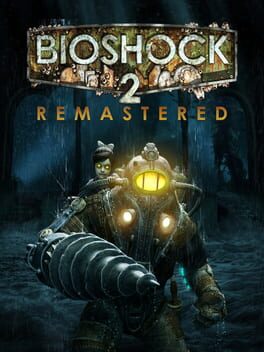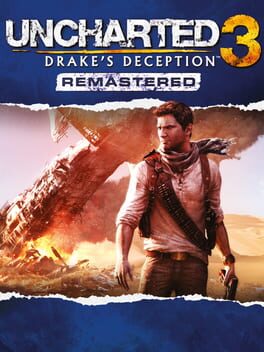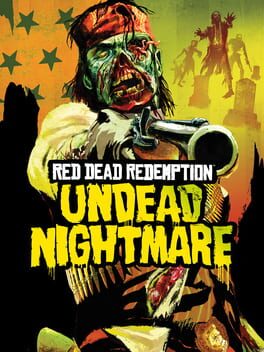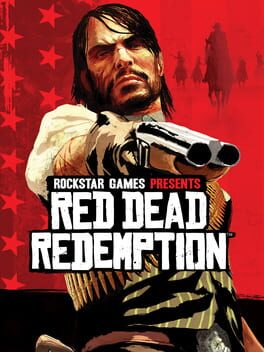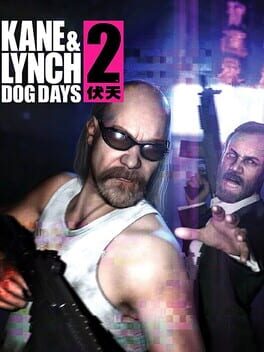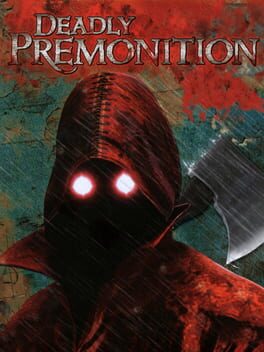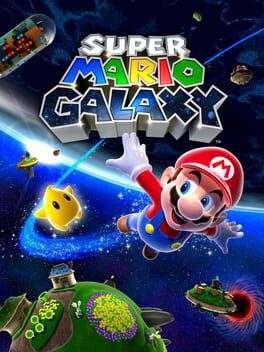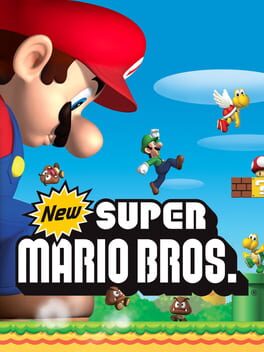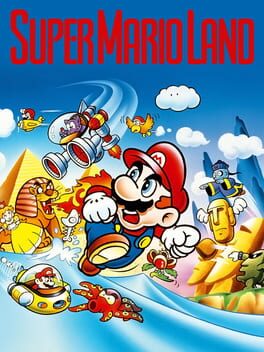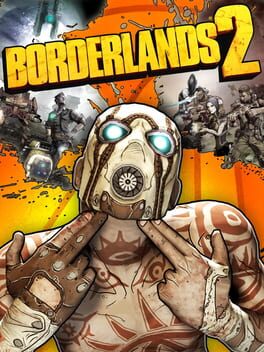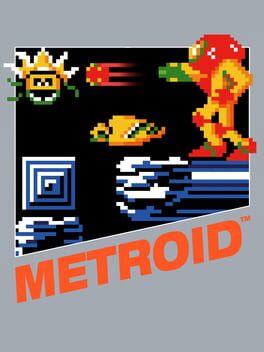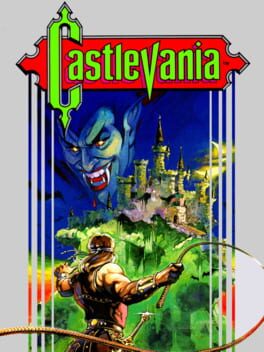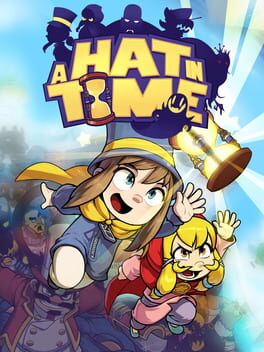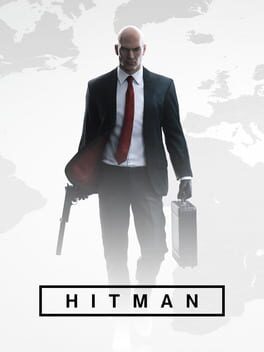Abdulla_Alsaleh
When it comes to this series, pretty much all I've ever heard anyone talk about was either BioShock or BioShock Infinite. I do understand why people remember these two games, but I was interested in finding out why I don't hear nearly as many people talk about BioShock 2, and I think it might've just been written off as a mediocre follow-up to an incredible game. I played the first half hour or so of this game shortly after I beat the first BioShock game, but since I was out of save data at the time, I realized that continuing to play would be pointless if it meant that I had to do everything all over again. After putting the game off for a year, I finally decided to play BioShock 2, and I was really surprised to find out just how much better this game was than its predecessor.
In terms of gameplay, BioShock 2 not only took everything that made BioShock fun and made it better, but it also improved on its missteps to make the experience that much more engaging. The plasmids, weapons, and genes were given even more opportunities to interact with the environment, as combining these elements and coming up with strategies to fight Splicers, Big Daddies, and Big Sisters made playing the game feel much more dynamic in terms of playstyles. The hacking minigame is actually fun this time around, and you're given more of a reason to hack items due to the potential bonuses you can earn. Rapture is as compelling of a setting as it has ever been, but I think that the atmosphere is even stronger here thanks to how much slower the player moves here in BioShock 2, as that makes it easier for you to take in the environmental storytelling and creepy sound design rather than just whizzing past your intricately detailed surroundings.
Of all the first game's aspects that I was expecting BioShock 2 to surpass, the story definitely wasn't one of them, but it managed to do that as well. Although Sophia Lamb wasn't as compelling of a villain as Andrew Ryan, I thought that BioShock 2 delivered on an emotional level much more than its predecessor, and a lot of that is thanks to its additions to the in-game morality system. Rather than silently being judged for your treatment of the Little Sisters, you genuinely feel like there are major consequences to your actions here in BioShock 2, and I genuinely ended up feeling bad by the end of the game. The narrative of BioShock cleverly examines the fallacy of free will by making your choices totally out of your hands, but BioShock 2 instead does the opposite by giving you plenty of options to examine where your morality stands and then rightfully punishing you for going the evil route, and I thought that this was an even more brilliant move than what was present in the first game. As much as I loved BioShock, I thought that BioShock 2 was so much better in almost every way, and while I am still excited to check out BioShock Infinite, I really don't see how the series could get any better than this.
In terms of gameplay, BioShock 2 not only took everything that made BioShock fun and made it better, but it also improved on its missteps to make the experience that much more engaging. The plasmids, weapons, and genes were given even more opportunities to interact with the environment, as combining these elements and coming up with strategies to fight Splicers, Big Daddies, and Big Sisters made playing the game feel much more dynamic in terms of playstyles. The hacking minigame is actually fun this time around, and you're given more of a reason to hack items due to the potential bonuses you can earn. Rapture is as compelling of a setting as it has ever been, but I think that the atmosphere is even stronger here thanks to how much slower the player moves here in BioShock 2, as that makes it easier for you to take in the environmental storytelling and creepy sound design rather than just whizzing past your intricately detailed surroundings.
Of all the first game's aspects that I was expecting BioShock 2 to surpass, the story definitely wasn't one of them, but it managed to do that as well. Although Sophia Lamb wasn't as compelling of a villain as Andrew Ryan, I thought that BioShock 2 delivered on an emotional level much more than its predecessor, and a lot of that is thanks to its additions to the in-game morality system. Rather than silently being judged for your treatment of the Little Sisters, you genuinely feel like there are major consequences to your actions here in BioShock 2, and I genuinely ended up feeling bad by the end of the game. The narrative of BioShock cleverly examines the fallacy of free will by making your choices totally out of your hands, but BioShock 2 instead does the opposite by giving you plenty of options to examine where your morality stands and then rightfully punishing you for going the evil route, and I thought that this was an even more brilliant move than what was present in the first game. As much as I loved BioShock, I thought that BioShock 2 was so much better in almost every way, and while I am still excited to check out BioShock Infinite, I really don't see how the series could get any better than this.
The first three Uncharted games were actually some of the first games that I bought on my PS4, as I had gotten it for my 13th birthday back in October of 2016 and then bought The Nathan Drake Collection as part of the January 2017 sale. I liked Uncharted: Drake's Fortune a lot and then loved Uncharted 2: Among Thieves even more, but I skipped Uncharted 3: Drake's Deception because my cousin gave me three games as a gift, with Uncharted 4: A Thief's End being one of them. My PS4's disk drive has been filled with dust since 2019, so I never actually finished the fourth game in the series, and because of that, I decided to finally play Uncharted 3: Drake's Deception from start to finish.
If there's one thing that makes Uncharted 3: Drake's Deception stand out in the original trilogy, it would be the game's sense of spectacle. The set pieces have always felt cinematic, but this game's story had an even stronger emphasis on globetrotting than the previous two entries, and it also made a stronger effort to explore Nathan Drake's past, his relationships, and whether or not he can continue to live his life as a thief. The chemistry between Nathan, Sully, Elena, Chloe, and the rest of the series' characters has always been strong, and the well written dialogue makes it fun to just sit back and listen to these characters talk to each other in between the bombastic action scenes, puzzles, and platforming segments. The Uncharted has always been able to deliver in terms of writing and visuals, and in this regard, Uncharted 3: Drake's Deception is just as good as the first two games.
Despite how positive that previous paragraph was, I generally consider Uncharted 3: Drake's Deception to be a huge downgrade from what was accomplished in Uncharted 2: Among Thieves, and that is because of how much worse the gameplay is here. I beat the second game on Crushing difficulty and loved it as a result, and I decided to do the same thing here, but doing that showed just how flawed the game's level design was. Rather than constantly having to experiment with what strategies to try out, pretty much all of the shootouts in Uncharted 3: Drake's Deception consist of hiding behind one bit of cover and killing all of your enemies before moving on to the next segment, and it gets incredibly frustrating with the sheer amount of armored enemies and especially the grenade spam. I remember there being grenade spam in Uncharted 2: Among Thieves, but that was done to discourage staying in one place, and since the levels in Uncharted 3: Drake's Deception were designed for you to do just that, the grenades just end up being an intensely annoying nuisance, especially with how much more frequently they're thrown at you. I did mention how the set pieces still feel cinematic, but even with that in mind, they still felt like a downgrade from the previous games, as all you really do in them is move forward and jump, which greatly takes away from the excitement that you're supposed to be feeling. My thoughts on Uncharted 3: Drake's Deception are complicated, to say the least, but the significantly worse gameplay outweighs the strong writing and voice acting, and I hope that Uncharted 4: A Thief's End ends up being better than this when I eventually get my PS4's disk drive cleaned out before booting it back up again.
If there's one thing that makes Uncharted 3: Drake's Deception stand out in the original trilogy, it would be the game's sense of spectacle. The set pieces have always felt cinematic, but this game's story had an even stronger emphasis on globetrotting than the previous two entries, and it also made a stronger effort to explore Nathan Drake's past, his relationships, and whether or not he can continue to live his life as a thief. The chemistry between Nathan, Sully, Elena, Chloe, and the rest of the series' characters has always been strong, and the well written dialogue makes it fun to just sit back and listen to these characters talk to each other in between the bombastic action scenes, puzzles, and platforming segments. The Uncharted has always been able to deliver in terms of writing and visuals, and in this regard, Uncharted 3: Drake's Deception is just as good as the first two games.
Despite how positive that previous paragraph was, I generally consider Uncharted 3: Drake's Deception to be a huge downgrade from what was accomplished in Uncharted 2: Among Thieves, and that is because of how much worse the gameplay is here. I beat the second game on Crushing difficulty and loved it as a result, and I decided to do the same thing here, but doing that showed just how flawed the game's level design was. Rather than constantly having to experiment with what strategies to try out, pretty much all of the shootouts in Uncharted 3: Drake's Deception consist of hiding behind one bit of cover and killing all of your enemies before moving on to the next segment, and it gets incredibly frustrating with the sheer amount of armored enemies and especially the grenade spam. I remember there being grenade spam in Uncharted 2: Among Thieves, but that was done to discourage staying in one place, and since the levels in Uncharted 3: Drake's Deception were designed for you to do just that, the grenades just end up being an intensely annoying nuisance, especially with how much more frequently they're thrown at you. I did mention how the set pieces still feel cinematic, but even with that in mind, they still felt like a downgrade from the previous games, as all you really do in them is move forward and jump, which greatly takes away from the excitement that you're supposed to be feeling. My thoughts on Uncharted 3: Drake's Deception are complicated, to say the least, but the significantly worse gameplay outweighs the strong writing and voice acting, and I hope that Uncharted 4: A Thief's End ends up being better than this when I eventually get my PS4's disk drive cleaned out before booting it back up again.
Generally speaking, I've never really played that much DLC, but I've always heard about how Undead Nightmare was one of the best expansion packs ever made. The zombie game genre is a dead horse that has been beaten to a pulp, especially during the seventh generation of consoles, but something about putting the zombie apocalypse in the western genre makes it all feel fresh, especially when it features a cast of characters that we've all gotten to know really well over the course of a 20-ish hour base game. I had a feeling that this was going to be good, but Undead Nightmare was honestly even more fun than I was expecting, as it brings some new stuff to the table to spice things up while still being Red Dead Redemption at the end of the day.
It's no surprise that the basic gameplay of Undead Nightmare is no different to that of the base game, but the way that you interact with the open world feels pretty different. Currency, minigames, and the honor system have all been totally omitted in favor of rescuing towns from being overrun by the undead or gunning down the townsfolk yourself, along with burning down graveyards and dealing with random encounters. This gameplay loop is pretty fun, and it also works alongside the main missions and sidequests featuring the same eclectic cast of characters that were in Red Dead Redemption (along with a handful of new ones). Since the only way to consistently kill zombies is by headshotting them, that makes the Dead Eye mechanic feel much more important when trying to conserve your ammo and save towns quickly, and being low on it while being faced with a horde of zombies can get really tense. The tone and writing of Undead Nightmare were also much funnier and more lighthearted while still not feeling out-of-place for these characters, and it's a refreshing and interesting contrast to the mature and serious nature of the base game. The four horses of the apocalypse were a really cool addition to the game, as they all had really cool designs, as well as some useful abilities. I will admit that the new weapons and items that they added to the game could have been better, since I only used them once or twice before switching back to the ones I was more familiar with (aside from the Blunderbuss, that weapon is awesome). Even with that in mind, Undead Nightmare was still an awesome expansion pack, and I'm still disappointed that Red Dead Redemption II never got a similar one, since Rockstar could've made use of that game's survival aspects to make something really special.
It's no surprise that the basic gameplay of Undead Nightmare is no different to that of the base game, but the way that you interact with the open world feels pretty different. Currency, minigames, and the honor system have all been totally omitted in favor of rescuing towns from being overrun by the undead or gunning down the townsfolk yourself, along with burning down graveyards and dealing with random encounters. This gameplay loop is pretty fun, and it also works alongside the main missions and sidequests featuring the same eclectic cast of characters that were in Red Dead Redemption (along with a handful of new ones). Since the only way to consistently kill zombies is by headshotting them, that makes the Dead Eye mechanic feel much more important when trying to conserve your ammo and save towns quickly, and being low on it while being faced with a horde of zombies can get really tense. The tone and writing of Undead Nightmare were also much funnier and more lighthearted while still not feeling out-of-place for these characters, and it's a refreshing and interesting contrast to the mature and serious nature of the base game. The four horses of the apocalypse were a really cool addition to the game, as they all had really cool designs, as well as some useful abilities. I will admit that the new weapons and items that they added to the game could have been better, since I only used them once or twice before switching back to the ones I was more familiar with (aside from the Blunderbuss, that weapon is awesome). Even with that in mind, Undead Nightmare was still an awesome expansion pack, and I'm still disappointed that Red Dead Redemption II never got a similar one, since Rockstar could've made use of that game's survival aspects to make something really special.
2010
Red Dead Redemption II was a game that changed how I viewed video games. I was only just starting to understand the idea of games being an art form thanks to the Metal Gear Solid series, but playing a painstakingly crafted game that featured a well written, expansive, and emotional story and a living, breathing open world that was filled to the brim with things to do made that concept obvious. It's a masterstroke of a game that I've been playing regularly since the day it came out, but despite how much love I have for it, I've always wished that I had started with the first game in the series. I mentioned finding a copy of Kane & Lynch 2: Dog Days at a CeX in in my review of that game, but I didn't mention how I bought Red Dead Redemption as well.
Rather than being a sprawling revisionist portrait of America like its sequel turned out to be, Red Dead Redemption feels and plays out more like a spaghetti western, as the gritty, dirty visuals and emblematic music feel like something out of a Leone or Corbucci film. One of the main themes of Red Dead Redemption is how America defines "civilization" and "savagery", as the ruthlessness of the game's government makes them no different from the outlaws and Native Americans that that they claim are the true threat to civilization, with the latter group being victims of their genocidal violence on a massive scale. Despite the game's title, John Marston's past and how it haunts him makes any chance of him redeeming himself impossible, and all you can really do is just have him do the best that he can as he watches the Old West that he always knew die right in front of him. The story is straightforward in its structure, cinematic in its execution, and complex in its themes, and the result is a brilliantly told, tragic, and unforgettable game that explores and blends many loaded topics with ease.
Aside from being incredibly well written, Red Dead Redemption is also a very fun game. The guns, horse riding, and especially the Dead Eye mechanic are satisfying (although they obviously aren't as fine-tuned as what is present in the sequel), and the game's missions often feature explosive and fun set pieces that make use of the game's many items and weapons. Exploring the huge open world is especially fun, as New Austin, Nuevo Paraíso, and West Elizabeth are all chock full of sidequests to complete, minigames to play, and gang hideouts to shoot up, and the random encounters with people in trouble even makes simply getting from point A to point B feel eventful. The score by Bill Elm and Woody Jackson is incredible, and the use of Far Away by José González led to one of the best and most beautiful moments I've ever experienced in a video game. The issues that I had with Red Dead Redemption were ones that all got fixed in Red Dead Redemption II, and while it isn't necessarily this game's fault that its sequel improved on it in every way, this was still what held me back from considering this game to be one of the very best. Even with that in mind, Red Dead Redemption is still a phenomenal game with a lot to offer, and since the copy that I picked up came with Undead Nightmare, I'll be playing that soon.
Rather than being a sprawling revisionist portrait of America like its sequel turned out to be, Red Dead Redemption feels and plays out more like a spaghetti western, as the gritty, dirty visuals and emblematic music feel like something out of a Leone or Corbucci film. One of the main themes of Red Dead Redemption is how America defines "civilization" and "savagery", as the ruthlessness of the game's government makes them no different from the outlaws and Native Americans that that they claim are the true threat to civilization, with the latter group being victims of their genocidal violence on a massive scale. Despite the game's title, John Marston's past and how it haunts him makes any chance of him redeeming himself impossible, and all you can really do is just have him do the best that he can as he watches the Old West that he always knew die right in front of him. The story is straightforward in its structure, cinematic in its execution, and complex in its themes, and the result is a brilliantly told, tragic, and unforgettable game that explores and blends many loaded topics with ease.
Aside from being incredibly well written, Red Dead Redemption is also a very fun game. The guns, horse riding, and especially the Dead Eye mechanic are satisfying (although they obviously aren't as fine-tuned as what is present in the sequel), and the game's missions often feature explosive and fun set pieces that make use of the game's many items and weapons. Exploring the huge open world is especially fun, as New Austin, Nuevo Paraíso, and West Elizabeth are all chock full of sidequests to complete, minigames to play, and gang hideouts to shoot up, and the random encounters with people in trouble even makes simply getting from point A to point B feel eventful. The score by Bill Elm and Woody Jackson is incredible, and the use of Far Away by José González led to one of the best and most beautiful moments I've ever experienced in a video game. The issues that I had with Red Dead Redemption were ones that all got fixed in Red Dead Redemption II, and while it isn't necessarily this game's fault that its sequel improved on it in every way, this was still what held me back from considering this game to be one of the very best. Even with that in mind, Red Dead Redemption is still a phenomenal game with a lot to offer, and since the copy that I picked up came with Undead Nightmare, I'll be playing that soon.
A few hours ago, I got back home from my two week trip to the UK, and one of the first things I did once I got back home was sit down and start playing Kane & Lynch 2: Dog Days. I ordered this game on eBay two months ago (along with Deadly Premonition and some Wii Remotes) after being intrigued by it for over a year, but it never arrived, so I was glad to find the game at a CeX in Coventry. It took me five or six hours to beat this game in two back-to-back sittings, but I really can't wait to go back and play it again, because Kane & Lynch 2: Dog Days was an incredible experience that really felt nothing like anything else I've played before. Kane & Lynch 2: Dog Days has been polarizing since its release (although it has been reevaluated to some extent recently), and the main reason for that is its presentation. This game is a total assault on the senses, as it wallows in the ugliness and depravity of its titular protagonists by having the neon-lit Shanghai be seen through shaky low-res camcorders, pixelated gore and nudity, blinding amounts of bokeh, and discordant jump cuts.
The bold and experimental approach that Kane & Lynch 2: Dog Days takes to telling its story of two awful men making an already bad situation worse and worse makes the game feel incredibly oppressive, uncomfortable, and flat-out nasty, and that makes the otherwise straightforward cover shooter gunplay feel so much more intense and visceral, along with the destructible environments, terrified civilians running through gunfire, and especially Mona Mur's terrific score being mixed with the game's mostly diegetic soundscape. Kane & Lynch 2: Dog Days was a phenomenal and relentlessly gritty game, and while I initially wasn't interested in playing the first game, Kane & Lynch: Dead Men, I think I might actually give it a go at some point after seeing TV Hed PE praise it on Instagram two days ago.
The bold and experimental approach that Kane & Lynch 2: Dog Days takes to telling its story of two awful men making an already bad situation worse and worse makes the game feel incredibly oppressive, uncomfortable, and flat-out nasty, and that makes the otherwise straightforward cover shooter gunplay feel so much more intense and visceral, along with the destructible environments, terrified civilians running through gunfire, and especially Mona Mur's terrific score being mixed with the game's mostly diegetic soundscape. Kane & Lynch 2: Dog Days was a phenomenal and relentlessly gritty game, and while I initially wasn't interested in playing the first game, Kane & Lynch: Dead Men, I think I might actually give it a go at some point after seeing TV Hed PE praise it on Instagram two days ago.
2010
There are a good number of games out there that I never would have heard of if it wasn't for Backloggd, and Deadly Premonition was one of them. I found out about the game around the time I first made my Backloggd account, and I was interested in it because of how varied the opinions on it were, as well as how suspiciously similar the basic premise was to Twin Peaks. Since I love the original series and consider it to be one of my favorite shows (along with Twin Peaks: The Return being my all time favorite TV series), I became really eager to get the game, and after listening to The Woods and the Goddess endlessly and even making the Sinner's Sandwich at one point (it was honestly pretty decent), I finally got to play Deadly Premonition after ordering it on eBay a few weeks ago. Despite the amount of non-spoilery stuff I've heard about the game, nothing could've prepared me for Deadly Premonition, and it was one of the best experiences I've had playing any game.
A lot of people described Deadly Premonition as a so-bad-it's-good game, but I honestly thought that it was just a phenomenal game through and through. While the visuals would look bad on a PS2, let alone an Xbox 360, no aspect of Deadly Premonition felt outright bad to me as much as they were charming, and I even thought that the supposedly awful controls were fine (aside from the driving), although that might be because I just finished playing Resident Evil 4 and these two games have very similar control schemes. The highlight of this game was easily the writing, as it strikes a perfect balance between being bizarre, campy, and endlessly compelling, along with how it was all told through some great dialogue. It definitely starts out as a Twin Peaks clone, but after the first few hours, Deadly Premonition turns into something entirely unique in its surreal, twisty storytelling. Not only was the plot incredibly engrossing, but the characters were also incredible, and I especially consider Francis York Morgan to be one of the best video game protagonists ever. Not only that, but the music in Deadly Premonition was flawless, as practically every track perfectly encapsulated at least one aspect of the game and its many tones.
Out of all the aspects of Deadly Premonition, people seem to be torn about its combat the most, and I honestly thought it was decent. Even if the shooting mechanics were clearly riffing on Resident Evil 4, I really loved the atmosphere that these moments had, and they got especially tense whenever the Raincoat Killer showed up. Deadly Premonition is brimming with passion, creativity, and heart at every corner, and despite how it's not exactly an "objectively" perfect game, I wouldn't have it any other way.
A lot of people described Deadly Premonition as a so-bad-it's-good game, but I honestly thought that it was just a phenomenal game through and through. While the visuals would look bad on a PS2, let alone an Xbox 360, no aspect of Deadly Premonition felt outright bad to me as much as they were charming, and I even thought that the supposedly awful controls were fine (aside from the driving), although that might be because I just finished playing Resident Evil 4 and these two games have very similar control schemes. The highlight of this game was easily the writing, as it strikes a perfect balance between being bizarre, campy, and endlessly compelling, along with how it was all told through some great dialogue. It definitely starts out as a Twin Peaks clone, but after the first few hours, Deadly Premonition turns into something entirely unique in its surreal, twisty storytelling. Not only was the plot incredibly engrossing, but the characters were also incredible, and I especially consider Francis York Morgan to be one of the best video game protagonists ever. Not only that, but the music in Deadly Premonition was flawless, as practically every track perfectly encapsulated at least one aspect of the game and its many tones.
Out of all the aspects of Deadly Premonition, people seem to be torn about its combat the most, and I honestly thought it was decent. Even if the shooting mechanics were clearly riffing on Resident Evil 4, I really loved the atmosphere that these moments had, and they got especially tense whenever the Raincoat Killer showed up. Deadly Premonition is brimming with passion, creativity, and heart at every corner, and despite how it's not exactly an "objectively" perfect game, I wouldn't have it any other way.
2005
I started playing both Resident Evil 4 and Super Mario Galaxy last year when my cousin gave me his Wii with a bunch of games on it, but after the bootleg Wii remotes that we bought from Amazon suddenly stopped working, I wasn't able to play these two games (or any other Wii games, for that matter) since then. Our new Wii remotes arrived from eBay roughly six days ago, and I've been playing these two games since then, and I'm really glad that I can now finally talk about how awesome of a game this is.
Believe it or not, Resident Evil 4 was my first "real" survival horror game, and I don't think I could've asked for a better introduction. It strikes the perfect balance between being an action-packed third person shooter and a tense horror game by making the shooting dynamic enough to compliment the many great and explosive set pieces while still limiting your ammo and resources just enough to make you panic when you see a group of Los Illuminados members approaching you. The grotesque enemy designs and dilapidated environments greatly give the game a uniquely macabre atmosphere, and they add to both the story's serious and campy moments. Leon Kennedy is such an awesome protagonist, and he's surrounded by a cast of equally fun and interesting characters.
I kept hearing that the Wii version of Resident Evil 4 was the best way to play the game, and while I wasn't sure why before I actually started playing it, I can't imagine experiencing the game any other way. Not only do the motion controls greatly add to the game's immersion, but they also make the shooting feel really precise and satisfying. I loved absolutely everything about Resident Evil 4, and I'm not only excited to check out some of the other games in the series, but I also want to eventually play some other horror games from franchises like Silent Hill.
Believe it or not, Resident Evil 4 was my first "real" survival horror game, and I don't think I could've asked for a better introduction. It strikes the perfect balance between being an action-packed third person shooter and a tense horror game by making the shooting dynamic enough to compliment the many great and explosive set pieces while still limiting your ammo and resources just enough to make you panic when you see a group of Los Illuminados members approaching you. The grotesque enemy designs and dilapidated environments greatly give the game a uniquely macabre atmosphere, and they add to both the story's serious and campy moments. Leon Kennedy is such an awesome protagonist, and he's surrounded by a cast of equally fun and interesting characters.
I kept hearing that the Wii version of Resident Evil 4 was the best way to play the game, and while I wasn't sure why before I actually started playing it, I can't imagine experiencing the game any other way. Not only do the motion controls greatly add to the game's immersion, but they also make the shooting feel really precise and satisfying. I loved absolutely everything about Resident Evil 4, and I'm not only excited to check out some of the other games in the series, but I also want to eventually play some other horror games from franchises like Silent Hill.
2007
Now, I know that I mentioned how most of my childhood was spent playing New Super Mario Bros. Wii in my last review, but despite the obvious hyperbole, I want to clarify that this isn't entirely true. As a kid, there were a number of games that I played to death, but the ones I remember sinking the most time into were the aforementioned New Super Mario Bros. Wii, along with LEGO Star Wars: The Complete Saga, Super Smash Bros. Brawl, and the Super Mario Galaxy duology. Out of those games, the Super Mario Galaxy duology have been in my life the longest, as they were actually some of the first games I remember playing (although the very first game I ever played was Super Mario Advance on my cousin's GBA). Despite how long they've been in my life, though, I never actually beat either one of these games until now.
This might be the nostalgia talking, but Super Mario Galaxy feels like pure magic. Despite Mario's movements being much more limited than in the other 3D entries, the game more than makes up for this by making the levels much more tightly constructed. The new gravity and planet mechanics inject the game's levels with a thousand times more imagination and creativity, but unlike something like the New Super Mario Bros. games, the constant new ideas in Super Mario Galaxy never feel gimmicky and instead add to the memorability of each level. The music in Super Mario Galaxy is arguably the best in the entire series, as Mahito Yokota and Koji Kondo's beautiful orchestral score greatly adds to the game's grandiose personality.
As much as Super Mario Galaxy means to me and my relationship with video games as a whole, there is one thing that is holding me back from considering this game to be perfect, and that would be the lack of actual camera controls. Since this game is mostly played with a fixed camera that rotates around Mario, this leads to a lot of instances where depth perception is difficult to judge, and the camera even occasionally broke by being at an angle where I couldn't even see that section of the level. Despite this issue, Super Mario Galaxy is still a stellar game that holds a special place in my heart, and it is easily one of the best games in the entire Mario franchise, let alone one of the best 3D Mario games.
This might be the nostalgia talking, but Super Mario Galaxy feels like pure magic. Despite Mario's movements being much more limited than in the other 3D entries, the game more than makes up for this by making the levels much more tightly constructed. The new gravity and planet mechanics inject the game's levels with a thousand times more imagination and creativity, but unlike something like the New Super Mario Bros. games, the constant new ideas in Super Mario Galaxy never feel gimmicky and instead add to the memorability of each level. The music in Super Mario Galaxy is arguably the best in the entire series, as Mahito Yokota and Koji Kondo's beautiful orchestral score greatly adds to the game's grandiose personality.
As much as Super Mario Galaxy means to me and my relationship with video games as a whole, there is one thing that is holding me back from considering this game to be perfect, and that would be the lack of actual camera controls. Since this game is mostly played with a fixed camera that rotates around Mario, this leads to a lot of instances where depth perception is difficult to judge, and the camera even occasionally broke by being at an angle where I couldn't even see that section of the level. Despite this issue, Super Mario Galaxy is still a stellar game that holds a special place in my heart, and it is easily one of the best games in the entire Mario franchise, let alone one of the best 3D Mario games.
I think it would be fair to assume that most of my childhood was spent playing New Super Mario Bros. Wii. I played that game over and over again when I was younger, and it led to me obsessively watching the trailers of its sequels. As I got older, though, I began to realize just how bland that game was when compared to the older 2D Mario games, and despite how fond my memories of playing that game were, I've been able to put my nostalgia aside and come to terms with just how mediocre New Super Mario Bros. Wii actually was. After beating Super Mario Land in around an hour, I decided to give New Super Mario Bros. a go to see if the by-the-numbers nature of New Super Mario Bros. Wii could be traced back to its predecessor, and that unfortunately turned out to be the case. Since this was the first original 2D Mario game since 1992's Super Mario Land 2: 6 Golden Coins, it made sense for Nintendo to play it safe with New Super Mario Bros., but that doesn't excuse it from feeling uninspired. The generic world themes and bubbly music made this one of the most stylistically forgettable games in the series, and it all felt like it was engineered to be as aggressively adequate as possible rather than even trying to do anything unique or interesting.
I remember mentioning the gimmick-heavy design philosophy of these games in my review of Donkey Kong Country 3: Dixie Kong's Double Trouble!, and this philosophy is as apparent as ever here in New Super Mario Bros.. On top of being an extremely easy game, the gimmicks in each level are always either slightly annoying or entirely avoidable, and the overuse of these gimmicks ironically made it harder for any of these levels to stand out. Generally, New Super Mario Bros. felt like a big nothing of a game to me, but I will mention a few things that I liked about this game. For starters, this and the other New Super Mario Bros. games feature the most satisfying controls in all of the 2D games, as they integrated a few moves from the 3D games in order to make controlling Mario feel more fluid and dynamic. I also liked some of the minigames, and while they clearly weren't meant to be played on any sort of trackpad, I still had some fun with them. New Super Mario Bros. isn't a bad game per se, but it's so pedestrian in its execution that I almost wish it was bad, because I would at least remember it if I ended up disliking it.
I remember mentioning the gimmick-heavy design philosophy of these games in my review of Donkey Kong Country 3: Dixie Kong's Double Trouble!, and this philosophy is as apparent as ever here in New Super Mario Bros.. On top of being an extremely easy game, the gimmicks in each level are always either slightly annoying or entirely avoidable, and the overuse of these gimmicks ironically made it harder for any of these levels to stand out. Generally, New Super Mario Bros. felt like a big nothing of a game to me, but I will mention a few things that I liked about this game. For starters, this and the other New Super Mario Bros. games feature the most satisfying controls in all of the 2D games, as they integrated a few moves from the 3D games in order to make controlling Mario feel more fluid and dynamic. I also liked some of the minigames, and while they clearly weren't meant to be played on any sort of trackpad, I still had some fun with them. New Super Mario Bros. isn't a bad game per se, but it's so pedestrian in its execution that I almost wish it was bad, because I would at least remember it if I ended up disliking it.
1989
Everyone knows that Mario is practically the king of video games, but over the years, I've noticed that people almost never mention Super Mario Land during conversations about the Mario franchise. Maybe it's because I'm not in the right circles, but I thought that people would be talking about Mario's first handheld game (if you're not counting his Game & Watch games) more often than they actually do. I had the urge to play a Mario game today, so I decided to go with a blind spot by playing through Super Mario Land for the first time.
I knew that this game would be a smaller experience than something like Super Mario Bros. for the NES due to the fact that it was a Game Boy launch title, but even then, I was surprised by just how short Super Mario Land was. This game is only twelve levels long, and while some of those levels are longer than others, you can probably beat this game in about half an hour if you knew your way around it. There were a lot of interesting ideas in this game that are completely absent in the rest of the series, like having Koopas explode after being stomped and turning the Fire Flower's fireballs into bouncy projectiles. These do add a bit of identity to the game, but the Fire Flower wasn't as well utilized as it could've been, as it was mostly used as another way to grab coins. The uniqueness of Super Mario Land also applies to the game's shoot 'em up levels, and while there were only two of them, they still felt like a major addition to the traditional Mario formula. I thought that the world themes in Super Mario Land were really interesting, as the worlds being based on Egypt, Easter Island, and even China made it feel like Mario was exploring our own planet rather than the Mushroom Kingdom, and I really liked that aspect of the game. The music in Super Mario Land is honestly some of the best in the entire series, and I especially liked the game's underground theme for how catchy it was.
I did mention how Super Mario Land felt a lot more bite-sized than the other games in the series up to that point, but this aspect of the game ended up hurting it in a number of ways. For starters, the screen is extremely cramped and almost every platform is only a few blocks wide, and the much more slippery movements that Mario had in this game made platforming feel clunky and unresponsive. I also really didn't have fun with the game's final boss, as its attack being able to kill you in one hit made the fight feel cheap, even if it didn't last for very long. I'm not going to act like Super Mario Land revolutionized the franchise, but it did have a lot of interesting ideas, and at the end of the day, it's still a Mario game.
I knew that this game would be a smaller experience than something like Super Mario Bros. for the NES due to the fact that it was a Game Boy launch title, but even then, I was surprised by just how short Super Mario Land was. This game is only twelve levels long, and while some of those levels are longer than others, you can probably beat this game in about half an hour if you knew your way around it. There were a lot of interesting ideas in this game that are completely absent in the rest of the series, like having Koopas explode after being stomped and turning the Fire Flower's fireballs into bouncy projectiles. These do add a bit of identity to the game, but the Fire Flower wasn't as well utilized as it could've been, as it was mostly used as another way to grab coins. The uniqueness of Super Mario Land also applies to the game's shoot 'em up levels, and while there were only two of them, they still felt like a major addition to the traditional Mario formula. I thought that the world themes in Super Mario Land were really interesting, as the worlds being based on Egypt, Easter Island, and even China made it feel like Mario was exploring our own planet rather than the Mushroom Kingdom, and I really liked that aspect of the game. The music in Super Mario Land is honestly some of the best in the entire series, and I especially liked the game's underground theme for how catchy it was.
I did mention how Super Mario Land felt a lot more bite-sized than the other games in the series up to that point, but this aspect of the game ended up hurting it in a number of ways. For starters, the screen is extremely cramped and almost every platform is only a few blocks wide, and the much more slippery movements that Mario had in this game made platforming feel clunky and unresponsive. I also really didn't have fun with the game's final boss, as its attack being able to kill you in one hit made the fight feel cheap, even if it didn't last for very long. I'm not going to act like Super Mario Land revolutionized the franchise, but it did have a lot of interesting ideas, and at the end of the day, it's still a Mario game.
2012
I downloaded Borderlands 2 back in June of 2019 after it became one of that month's free PSN games, as I always heard that it was fun to play with friends. After noticing that it was in my backlog years later, I asked my friend if he wanted to go back and beat Borderlands 2 with me, but because 2K Games apparently hates it when two people want to play the same game on different consoles by making it a nightmare to set everything up, I decided to beat the game on my own. This process took well over a year, and that is entirely due to just how unfun Borderlands 2 was for me to play.
Before I go ahead with why I hated this game so much, I just want to address the whole sentiment that this game is more fun with multiple players, because you can apply that to pretty much every game ever made. Playing with friends is fun by default, regardless of what game it is, so me playing the game alone doesn't excuse how bad Borderlands 2 is. Anyway, I hated pretty much everything about this game that other people seemed to love, and one of these would be the gameplay loop itself. Wandering around empty areas and shooting endless amounts of bullet sponge enemies that take forever to kill made this game feel like a chore the whole way through, and the enemies themselves aren't placed with any sort of purpose or intricacy whatsoever. One of the main selling points of the Borderlands series is how no two weapons are the same, and while it is interesting to have your loadout constantly change throughout each playthrough, the dependence on RNG made almost every weapon that I earned feel obsolete when compared to what I had already found.
If the game was just unfun to play, then I would've just dismissed Borderlands 2 as a boring looter shooter, but what makes this game a complete disaster for me is its writing. No character in this game ever shuts up, and the game's sense of humor reeks of 2012 internet culture with how loud and obnoxious it is. When I wasn't bored by the gameplay, I was annoyed by the dialogue, and I couldn't stand hearing these characters constantly run their mouths before I had even reached the halfway mark. Not only that, but this constant barrage of annoying nonsense is used to tell a boring story that somehow expects you to care for its one-dimensional characters, which was flat out impossible for me to do because of how aggravating they all were. It doesn't help that this game is coated in an ugly artstyle that looks like a bad mishmash of Mad Max and a comic book that was written and illustrated by a 13 year old. I will admit that the music wasn't that bad, although that isn't to say that it wasn't generic. For me, Borderlands 2 was zero fun to play, and I don't think I ever want to play another game from this series ever again.
Before I go ahead with why I hated this game so much, I just want to address the whole sentiment that this game is more fun with multiple players, because you can apply that to pretty much every game ever made. Playing with friends is fun by default, regardless of what game it is, so me playing the game alone doesn't excuse how bad Borderlands 2 is. Anyway, I hated pretty much everything about this game that other people seemed to love, and one of these would be the gameplay loop itself. Wandering around empty areas and shooting endless amounts of bullet sponge enemies that take forever to kill made this game feel like a chore the whole way through, and the enemies themselves aren't placed with any sort of purpose or intricacy whatsoever. One of the main selling points of the Borderlands series is how no two weapons are the same, and while it is interesting to have your loadout constantly change throughout each playthrough, the dependence on RNG made almost every weapon that I earned feel obsolete when compared to what I had already found.
If the game was just unfun to play, then I would've just dismissed Borderlands 2 as a boring looter shooter, but what makes this game a complete disaster for me is its writing. No character in this game ever shuts up, and the game's sense of humor reeks of 2012 internet culture with how loud and obnoxious it is. When I wasn't bored by the gameplay, I was annoyed by the dialogue, and I couldn't stand hearing these characters constantly run their mouths before I had even reached the halfway mark. Not only that, but this constant barrage of annoying nonsense is used to tell a boring story that somehow expects you to care for its one-dimensional characters, which was flat out impossible for me to do because of how aggravating they all were. It doesn't help that this game is coated in an ugly artstyle that looks like a bad mishmash of Mad Max and a comic book that was written and illustrated by a 13 year old. I will admit that the music wasn't that bad, although that isn't to say that it wasn't generic. For me, Borderlands 2 was zero fun to play, and I don't think I ever want to play another game from this series ever again.
1986
There have been multiple times in my life where I would sit down and say "You know what? I'm gonna play a Metroid game from start to finish!", and I would get decently far into it before eventually getting lost and forgetting about it. This happened with both the first game and Super Metroid, and while I do remember having more fun while playing the latter game, I always wanted to beat the first game in this franchise before any of the other ones, so I decided to finally play Metroid from beginning to end.
A lot of the issues that Metroid has are shared with other games on the NES, namely The Legend of Zelda. It's an often bafflingly cryptic game that is impossible to beat without either a guide or the endless amount of free time that kids back in 1986 probably had. It's definitely impressive that they managed to get a map this big and seamlessly interconnected on a system that was as limited as the NES, and having the player literally feel lost greatly adds to the sense of isolation that this game tries to sell alongside its atmospheric music, but even then, having some sort of map in the corner of the screen or something would've helped. Because of how similar all of the areas and enemies are, you never feel like you're making very much progress aside from finding the occasional upgrade, especially when you end up having to backtrack to an area that you've already been through for what feels like the thousandth time. I understand making the player go back to a previously inaccessible part of the level with their newly earned upgrades, but most of the time, I had no clue what had changed in each level, as I was just going through it like how I normally did.
Metroid and Castlevania both led to the creation of the aptly titled Metroidvania genre of games, but unlike the latter game, the main character of Metroid actually feels good to control (although my opinion on this will probably change once I play Super Castlevania IV). Moving around as Samus Aran feels great, even if the more precision-based platforming that shows up later in the game proves to be a bit too much for her to handle with her vaguely inconsistent jump arcs. Some of the enemy types ended up being really annoying to fight, but none of that frustration even compares to the hatred I have for this game's final boss. Shooting dozens of missiles at Mother Brain while being bombarded with unavoidable lasers and Rinkas was extremely frustrating, especially with how you get knocked back every single time you got hit like in Castlevania. I didn't think that Metroid aged well at all, but that isn't to say that it's a bad game, even if I wasn't a big fan of it. I've heard that this game's GBA remake, Metroid: Zero Mission, fixes a lot of the problems that I had with this game, and while I might get to that game at some point, I want to play Super Metroid first.
A lot of the issues that Metroid has are shared with other games on the NES, namely The Legend of Zelda. It's an often bafflingly cryptic game that is impossible to beat without either a guide or the endless amount of free time that kids back in 1986 probably had. It's definitely impressive that they managed to get a map this big and seamlessly interconnected on a system that was as limited as the NES, and having the player literally feel lost greatly adds to the sense of isolation that this game tries to sell alongside its atmospheric music, but even then, having some sort of map in the corner of the screen or something would've helped. Because of how similar all of the areas and enemies are, you never feel like you're making very much progress aside from finding the occasional upgrade, especially when you end up having to backtrack to an area that you've already been through for what feels like the thousandth time. I understand making the player go back to a previously inaccessible part of the level with their newly earned upgrades, but most of the time, I had no clue what had changed in each level, as I was just going through it like how I normally did.
Metroid and Castlevania both led to the creation of the aptly titled Metroidvania genre of games, but unlike the latter game, the main character of Metroid actually feels good to control (although my opinion on this will probably change once I play Super Castlevania IV). Moving around as Samus Aran feels great, even if the more precision-based platforming that shows up later in the game proves to be a bit too much for her to handle with her vaguely inconsistent jump arcs. Some of the enemy types ended up being really annoying to fight, but none of that frustration even compares to the hatred I have for this game's final boss. Shooting dozens of missiles at Mother Brain while being bombarded with unavoidable lasers and Rinkas was extremely frustrating, especially with how you get knocked back every single time you got hit like in Castlevania. I didn't think that Metroid aged well at all, but that isn't to say that it's a bad game, even if I wasn't a big fan of it. I've heard that this game's GBA remake, Metroid: Zero Mission, fixes a lot of the problems that I had with this game, and while I might get to that game at some point, I want to play Super Metroid first.
1986
Despite how much of my life has been spent playing video games, there are still tons of decade-old video game franchises that I've never actually beaten a game from until now, and the Castlevania series is one of them. I do remember trying the first game out years ago, but I turned it off shortly after and switched to Tetris or something like that. I did want to give one of these games a shot, though, and I thought that the best place to start would be at the very beginning. I started playing Castlevania at around late March or early April, but I got stuck at the Grim Reaper boss on the 2nd of April and didn't actually beat him (or the rest of the game, for that matter) until now.
Castlevania is a flawed game that got whooped from front to back by the passage of time, but I want to talk about what this game does right first. Castlevania proudly takes inspiration from the Universal horror movies of the 1930s and 1940s, and thanks to the amount of classic monsters being used as enemies and bosses throughout the game, as well as some great music and a decrepit, eerie atmosphere, Castlevania feels like a playable melting pot of those movies. Speaking of which, my version of the game was slightly slower than it was supposed to be, but that weirdly made the music seem a bit more grandiose, which made it just that much closer to the movies it was inspired by, so I guess it all worked out in the end. Although I really liked and admired the audiovisual aspects of Castlevania, the gameplay made this game a chore to play as it went on, and that odd mix makes my thoughts on this game somewhat complicated.
Castlevania is a game where you technically only do six things (walking, jumping, crouching, climbing stairs, whipping, and using items), and yet somehow, all of these moves end up being clunky in their own unique ways. The platforming in this game isn't the best, as Simon Belmont feels stiff to control, and pressing the jump button turns him into an anvil being lifted by dental floss. He can't even turn around mid-jump, and the fact that he gets knocked back 5,000 feet every time an enemy touches him makes this even worse. Swinging the Vampire Killer does have some nice weight to it, but its slow swinging time often leads to you being hit mid-swing, and that gets really annoying when enemies start flying or shooting projectiles, especially considering how Belmont stops moving whenever he swings his whip, along with how he can only swing in two directions. Climbing a staircase means that you have to hold both the direction that you're facing and the direction of those stairs, so when you try to hit an enemy while going upstairs, you instead end up wasting an item by mistake, and the items themselves all have random chances of spawning, which makes some areas and bosses way harder than they need to be.
Despite how awkward this game felt to play, I didn't outright dislike Castlevania, and a lot of that is thanks to the great atmosphere and music. I've heard that Super Castlevania IV is a good next step to take for this series, so I'll probably play that next, and after that, I'll end up playing the Castlevania game that I've been looking forward to the most, Castlevania: Symphony of the Night.
Castlevania is a flawed game that got whooped from front to back by the passage of time, but I want to talk about what this game does right first. Castlevania proudly takes inspiration from the Universal horror movies of the 1930s and 1940s, and thanks to the amount of classic monsters being used as enemies and bosses throughout the game, as well as some great music and a decrepit, eerie atmosphere, Castlevania feels like a playable melting pot of those movies. Speaking of which, my version of the game was slightly slower than it was supposed to be, but that weirdly made the music seem a bit more grandiose, which made it just that much closer to the movies it was inspired by, so I guess it all worked out in the end. Although I really liked and admired the audiovisual aspects of Castlevania, the gameplay made this game a chore to play as it went on, and that odd mix makes my thoughts on this game somewhat complicated.
Castlevania is a game where you technically only do six things (walking, jumping, crouching, climbing stairs, whipping, and using items), and yet somehow, all of these moves end up being clunky in their own unique ways. The platforming in this game isn't the best, as Simon Belmont feels stiff to control, and pressing the jump button turns him into an anvil being lifted by dental floss. He can't even turn around mid-jump, and the fact that he gets knocked back 5,000 feet every time an enemy touches him makes this even worse. Swinging the Vampire Killer does have some nice weight to it, but its slow swinging time often leads to you being hit mid-swing, and that gets really annoying when enemies start flying or shooting projectiles, especially considering how Belmont stops moving whenever he swings his whip, along with how he can only swing in two directions. Climbing a staircase means that you have to hold both the direction that you're facing and the direction of those stairs, so when you try to hit an enemy while going upstairs, you instead end up wasting an item by mistake, and the items themselves all have random chances of spawning, which makes some areas and bosses way harder than they need to be.
Despite how awkward this game felt to play, I didn't outright dislike Castlevania, and a lot of that is thanks to the great atmosphere and music. I've heard that Super Castlevania IV is a good next step to take for this series, so I'll probably play that next, and after that, I'll end up playing the Castlevania game that I've been looking forward to the most, Castlevania: Symphony of the Night.
2017
Crowdfunded games have always been a mixed bag, even the ones that were supposedly made by people who knew what they were doing. For every good Kickstarter game like Shovel Knight, there is an underdelivering disaster like Mighty No. 9, and I'm pretty sure it's going to be like that until the end of time. When they stick the landing, though, it feels like a victory for both the developers and indie games as a whole, and A Hat in Time is a great example of this. I bought this game back in December of 2017 after seeing FUNKe's video of him praising the game, and I'm not sure if it was because I needed space on my PlayStation or something like that, but I apparently deleted the game after getting two thirds or so into it. After beating Elden Ring on Friday, I redownloaded a bunch of games that I've had sitting in my backlog, and A Hat in Time was one of them.
Talking about A Hat in Time without just praising everything about it is kind of hard, as it accomplishes pretty much everything it sets out to do pretty well. The game makes its inspiration from sixth generation 3D collectathons loud and clear, as it wraps its memorable characters and stages in a cute, cel-shaded artstyle that would fit right at home on a GameCube. Not only does Hat Kid feel great to control, but switching between different hats and badges makes the game feel more dynamic with its already well designed levels and bosses, and it also makes finding the levels' different secrets more fun. There's only one serious thing that I thought A Hat in Time could have done better, and that would be its camera controls. For some reason, the game's camera can't actually turn a full 360 degrees, and I never got used to how weird the camera felt to turn during my playthrough. I also thought that the game didn't really need a twist villain, but that didn't actually bug me very much. Other than that, A Hat in Time is a great collectathon platformer, and while it did get overshadowed by both Cuphead and Super Mario Odyssey when it came out, I'm still glad that it got the recognition that it deserved.
Talking about A Hat in Time without just praising everything about it is kind of hard, as it accomplishes pretty much everything it sets out to do pretty well. The game makes its inspiration from sixth generation 3D collectathons loud and clear, as it wraps its memorable characters and stages in a cute, cel-shaded artstyle that would fit right at home on a GameCube. Not only does Hat Kid feel great to control, but switching between different hats and badges makes the game feel more dynamic with its already well designed levels and bosses, and it also makes finding the levels' different secrets more fun. There's only one serious thing that I thought A Hat in Time could have done better, and that would be its camera controls. For some reason, the game's camera can't actually turn a full 360 degrees, and I never got used to how weird the camera felt to turn during my playthrough. I also thought that the game didn't really need a twist villain, but that didn't actually bug me very much. Other than that, A Hat in Time is a great collectathon platformer, and while it did get overshadowed by both Cuphead and Super Mario Odyssey when it came out, I'm still glad that it got the recognition that it deserved.
2016
Along with Solid Snake and Sam Fisher, Agent 47 is an icon of the stealth action genre, and the only game of his that I've played is the first entry of the franchise's newly rebooted trilogy. I downloaded HITMAN all the way back in February of 2019 because it was one of the free PlayStation Plus games of that month and I wanted to give the series a shot, but after playing it for around a day and then saying to myself "This isn't Metal Gear Solid!", I deleted the game and never went back to it. At some point during my Elden Ring playthrough, though, I had the urge to give HITMAN another shot, so I reinstalled the game and then played through its six missions over the next two days.
Despite how hard IO Interactive tries to convince you otherwise, HITMAN doesn't really feel like the sandbox game it thinks it is. This game is more like a wolf in sheep's clothing, where it has a number of set paths that the player is "supposed" to take in order to assassinate their targets with a bunch of extra weapons, tools, and potential disguises surrounding them. I don't know if it's because I've been spoiled by the Metal Gear Solid series all these years, but whenever I tried a strategy that was even slightly different from what the game wanted me to do, I would eventually find myself camping in a bathroom as I waited for enemies to appear one by one so that I can shoot them with a shotgun until the coast was clear. For a game that claims to be all about players making their own decisions, HITMAN harshly punishes any sort of experimentation while also cluttering each level with items that you'll either never use or never get the chance to use, and that made me wish that the game could just commit to either being a sandbox stealth game or something more linear.
Even with this game's identity crisis issue in mind, I still had a pretty good time with HITMAN. When I was following the game's instructions and assassinating someone by staging a freak accident, I felt like the cold blooded professional killer that the game wanted me to be, and when I alerted every single guard on the map because I threw a screwdriver into my target's head right in front of their bodyguards, I felt like the exact opposite (but in a good way). Going through premeditated scenarios and adapting to new ones was the core of what made HITMAN so fun for me, and while finally killing my targets and making it out of the zone alive did take more than a few tries with each mission, I still felt satisfied by the end, no matter how I got it done. These levels were definitely meant to be played over and over again until all of their options have been executed, but as far as first impressions go, I thought that HITMAN was a pretty good stealth game, although its definition of the word "sandbox" seems to be a bit flawed.
Despite how hard IO Interactive tries to convince you otherwise, HITMAN doesn't really feel like the sandbox game it thinks it is. This game is more like a wolf in sheep's clothing, where it has a number of set paths that the player is "supposed" to take in order to assassinate their targets with a bunch of extra weapons, tools, and potential disguises surrounding them. I don't know if it's because I've been spoiled by the Metal Gear Solid series all these years, but whenever I tried a strategy that was even slightly different from what the game wanted me to do, I would eventually find myself camping in a bathroom as I waited for enemies to appear one by one so that I can shoot them with a shotgun until the coast was clear. For a game that claims to be all about players making their own decisions, HITMAN harshly punishes any sort of experimentation while also cluttering each level with items that you'll either never use or never get the chance to use, and that made me wish that the game could just commit to either being a sandbox stealth game or something more linear.
Even with this game's identity crisis issue in mind, I still had a pretty good time with HITMAN. When I was following the game's instructions and assassinating someone by staging a freak accident, I felt like the cold blooded professional killer that the game wanted me to be, and when I alerted every single guard on the map because I threw a screwdriver into my target's head right in front of their bodyguards, I felt like the exact opposite (but in a good way). Going through premeditated scenarios and adapting to new ones was the core of what made HITMAN so fun for me, and while finally killing my targets and making it out of the zone alive did take more than a few tries with each mission, I still felt satisfied by the end, no matter how I got it done. These levels were definitely meant to be played over and over again until all of their options have been executed, but as far as first impressions go, I thought that HITMAN was a pretty good stealth game, although its definition of the word "sandbox" seems to be a bit flawed.
